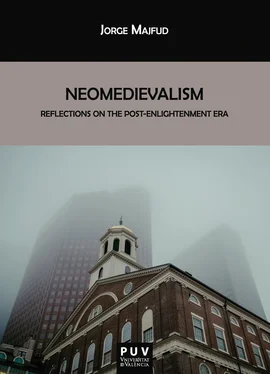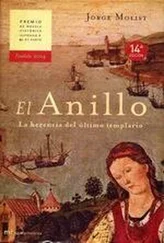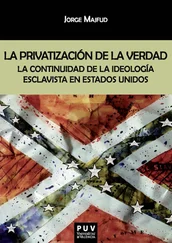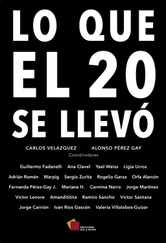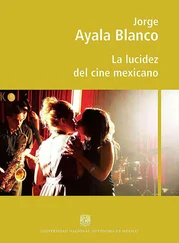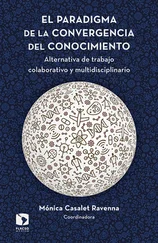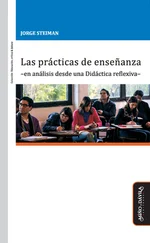However, literature is still there; being troublesome from the beginning, because to say its own truths it only needs a modest pen and a piece of paper. Its greatest value will continue to be the same: not to resign itself to the complacency of the people nor to the temptation of barbarism. Politics and television are for that.
Every so often a politician, a bureaucrat or a smart investor decides to strangulate the humanities with a cut in education, some culture ministry or simply downloading the full force of the market over the busy factories of prefabricated sensitivities.
Much more sincere are the gravediggers who look us in the eyes, and with bitterness or simple resentment, throw their convictions in our faces as if they were a single question: What good is literature?
Some wield this kind of philosophical question not as an analytical instrument but as a mechanical shovel, to slowly widen a tomb full of living corpses.
The gravediggers are old acquaintances. They live or pretend to live, but they are always clinging to the throne of time. Up or down, there they go repeating with voices of the dead their utilitarian superstitions about needs and progress.
How to respond about the uselessness of literature depends on what you comprehend to be useful and not on the literature itself. How useful is the epitaph, the tombstone carved, a reconciliation, sex with love, farewell, tears, laughter, coffee? How useful is football, television programs, photographs that are traded on social networks, racing horses, whiskey, diamonds, thirty pieces of Judas and the repentance?
There are very few who seriously wonder what good is football or the greed of Madoff. There are but a few people (or they have not had enough time) who question or wonder, “What good is literature?” Soccer and football are at best, naïve. They have frequently been accomplices of puppeteers and gravediggers.
Literature, if it has not been an accomplice of puppeteers, has just been literature. Its critics do not refer to the respectable business of bestsellers or of prefabricated emotions. No one has ever asked so insistently, “what good is good business?” Critics of literature, deep down, are not concerned with this type of literature. They are concerned with something else. They worry about literature.
The best Olympic athletes have shown us how much the human body may withstand. Formula One racers as well, although borrowing some tricks. The same with the astronauts who put their first steps on the moon, the shovel that builds also destroys.
The same way, the great writers throughout history have shown how far and deep human experience, (what really matters, what really exists) the vertigo of the highest and deepest ideas and emotions, can go.
For gravediggers only the shovel is useful. For the living dead too.
For others who have not forgotten their status as human beings who dare to go beyond the narrow confines of their own primitive individual experience, for the condemned who roam the mass graves but have regained the passion and dignity of human beings, for them it is literature.
Then, yes, we can say literature is good for many things. But, because we know that our inquisitors of the day are most interested in profits and benefits, we should remind them that a narrow spirit can hardly shelter a great intelligence. A great intelligence trapped within a narrow spirit sooner or later chokes. Or it becomes spiteful and vicious. But, of course, a great intelligence, spiteful and vicious, can hardly understand this. Much less, then, when it is not even a great intelligence.
HEAD-SHRINKING JOURNALISM
By the nineties, yet still in the twentieth century, I used to write for five or six hours at a time on a Czech typewriter I had bought for the price of scrap. I had found it at a Sunday fair called Tristan Narvaja, in Montevideo, something like the Madrid street fair Feria del Rastro or some marché aux Puces in Paris. In that lonely student room that faced an alley in the Old City, I wrote and rewrote the same chapter of a novel four or five times. The hardest part was always reducing the number of words. At least, it was that part of the literary craft that consumed me the most. Nevertheless, I did it with passion, pleasure, and without any urgency, since at that time I did not write for a publication.
When I published my first novel, Memorias de un desaparecido , it was partly the result of the chaotic struggle between obsessions, superstitions, and personal hallucinations with the almost impossible phenomenon of communication in a phantasmagoric world, which normally is very significant for oneself but not for the rest. I am sure that if I have managed to communicate with others using or usurping the sacred art of literature, it was thanks to successive mutilations: communication of the deepest emotions only occurs in a narrow space between one’s own follies and the particularities of others.
Thanks to this little novel, in a few months I met several young journalists whose friendship I retain to the present day. One day, one of them asked me to write an article on the subject of a conversation we had had, warning me that he only had space for just four thousand words. I never imagined that, for the misery of so many readers, that one would be the first article of many hundreds I have published to date. Occasionally I find that many of them have been republished in newspapers and magazines, sometimes erroneously signed by others. I usually just need to read two sentences to see if I or someone else wrote it, even when it is a fifteen-year-old article. I normally always excuse these errors but I strongly object, with some success, when I find my name on items that I never wrote. It is not good to kidnap merits or take the blame for the follies of others.
At the end of the century, you could still find short articles of four or five thousand words in nonacademic publications. Soon I could feel, beyond just understanding, the educational benefit of reducing long essays to this number, which at first seemed so greedy.
Within the first three or four years of this century, publishers had modified their typical word count from 4,000 to 2,000. I remember a major Mexican newspaper that once returned my usual weekly article because it surpassed the limit of 1,800 words. They kindly suggested that I reduce it to that number. So I did, sure that brevity is a form of kindness, and continued publishing there and in other newspapers of the continent, which apparently felt more comfortable with the new format.
A few years later, the sacred number had shrunk to 1,200, which coincided again with the standard of the entire continent, and one or two years later it reached the milestone of one thousand words.
Not long ago, one of the world’s most-read media outlets asked me on four separate occasions to reduce an article to 800 words. The first time, I sent an article of a thousand words. They said I should make an effort to trim it down to 850. I sent another 900-word piece, assuming some flexibility from them. Rejected. Normally, I would have given up on sending another version, but I was very interested in publishing the article in question because its subject matter was near and dear to me. Pained, I mutilated it again to make it 850 words. Naturally, it was published.
To date, the float level of op-eds walks the 800-word limit, and dis-counting.
Now, except for the brochures and pamphlets that fill our mailboxes every day and bestsellers sold by the kilogram, this dramatic, unlimited reduction of texts in the current media is not due to a space issue, as in the times since the ancient Egyptians and Sumerians, for convent scribes, incunabula, heretics’ hermeneutics, the French encyclopédistes , and all paper periodicals from the eighteenth century to the twentieth. It is due to the new reader.
Читать дальше
